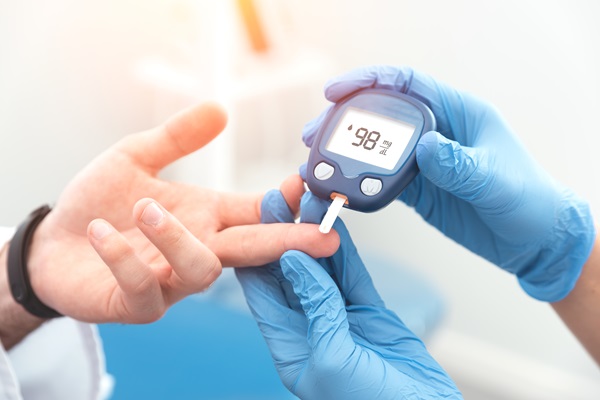What To Expect During a Diabetes Check

Regular diabetes check are important for helping those with diabetes stay healthy and reduce their risk of complications. If a doctor has diagnosed you or a loved one recently, you may have questions about what comes next. In addition to following a doctor's care plan and lifestyle advice, regular diabetes checks are crucial for controlling diabetes.
Importance of diabetes checks
Depending on a patient's situation, they should expect to see their doctor once every three or six months. Those with diabetes are at higher risk for certain health problems, such as heart health issues, kidney problems, vision loss, and nerve damage. Diabetes checks are important for learning about diabetes and managing it best to reduce the likelihood of these health problems.
What to expect
Regular diabetes checks look different for each patient. Those taking prescriptions will need professional monitoring to ensure they are taking the medications correctly and working as they should. The doctor will examine those with insulin-dependent diabetes for signs of skin problems at the injection sight. In addition, the provider may examine the patient's abdomen for signs of an enlarged liver.
Routine Tests
Checks of a patient's weight and body-mass index, blood pressure, and feet are typically part of every diabetes check. Other common screenings include the following.
Hemoglobin A1C
This blood test shows how well a patient controls their blood sugar levels over a three-month period. High AIC levels are a sign a patient's blood sugar levels are high, and they are at greater risk for complications. Testing frequency can vary between every three to six months depending on factors such as changes in medication and how well a patient is keeping to their target A1C levels.
Cholesterol and triglicerides
A series of blood tests measure the level of cholesterol and triglycerides in the blood. This screening should happen in the morning after fasting overnight. The frequency of screening depends on the patient's age and other health factors. For example, those under 40 need this screening about once every five years unless the results are abnormal. However, those over 40 will need it annually and more often after starting medication.
Kidney test
Considering those with diabetes are at higher risk for kidney disease, providers will test kidney function annually or more frequently if previous tests have shown signs of kidney disease. A provider will also check for a protein called albumin in a patient's urine. Too much is a sign of kidney damage.
Bone mineral density
Those with diabetes are at higher risk for osteoporosis, especially if they have additional risk factors such as age. Providers typically recommend this screening for women at menopause and men around age 50.
In addition to these screenings, those with diabetes should see a dentist every six months and visit an eye doctor familiar with diabetes at least once a year.
Living healthy with diabetes
Millennium Medical Care Woodbridge helps people of all ages manage their diabetes and thrive. Even if you live a healthy lifestyle, regular monitoring is still important for controlling the condition. Do not hesitate to call if you have further questions about what to expect from a diabetes check.
Request an appointment here: https://hillendale.millenniummedicalcare.com or call Millennium Medical Care Woodbridge at (703) 945-1942 for an appointment in our Woodbridge office.
Check out what others are saying about our services on Yelp: Diabetes Check in Woodbridge, VA.
Recent Posts
Contracting the common cold can be easier for some people than for others. Specific risk factors increase your odds of getting sick with a cold virus. Understanding why these factors can make you sicker can help you avoid them. It could even save you a trip to the urgent care clinic. If you want to…
Contracting the common cold involves suffering from sore throat, sneezing, nose, and cough. It is a disease affecting many communities. Colds may be common, but these infections are enough to make you miss work or classes. The most effective way to fight colds is to prevent them. Going to your local urgent care facility can…
Preventing the common cold is a good way to maintain your health. It saves you a trip or two to the nearest urgent care facility. Keeping yourself free from illness can also prevent you from missing work or classes. If you want to learn how to ward off the common cold, here are some lifestyle…
You have almost certainly had the common cold at some point. More than likely, you get at least one cold every year. This common illness can hang around for several days and make life miserable during this time. There are similar sicknesses that can also affect you, namely a chest cold. You should learn the…


